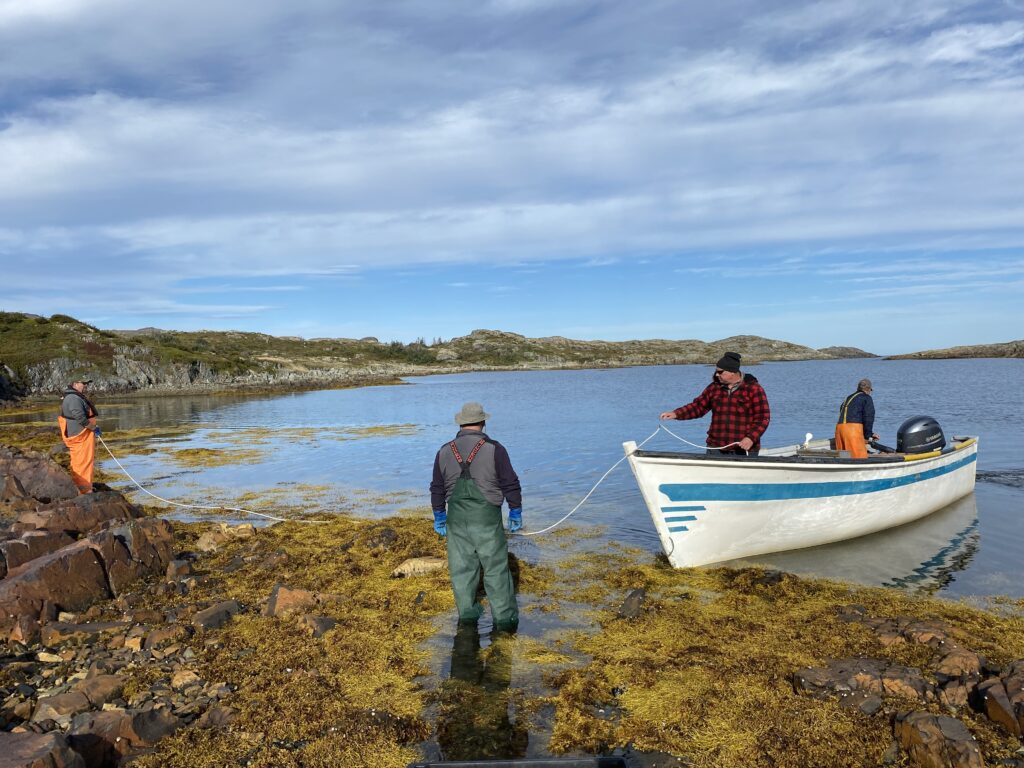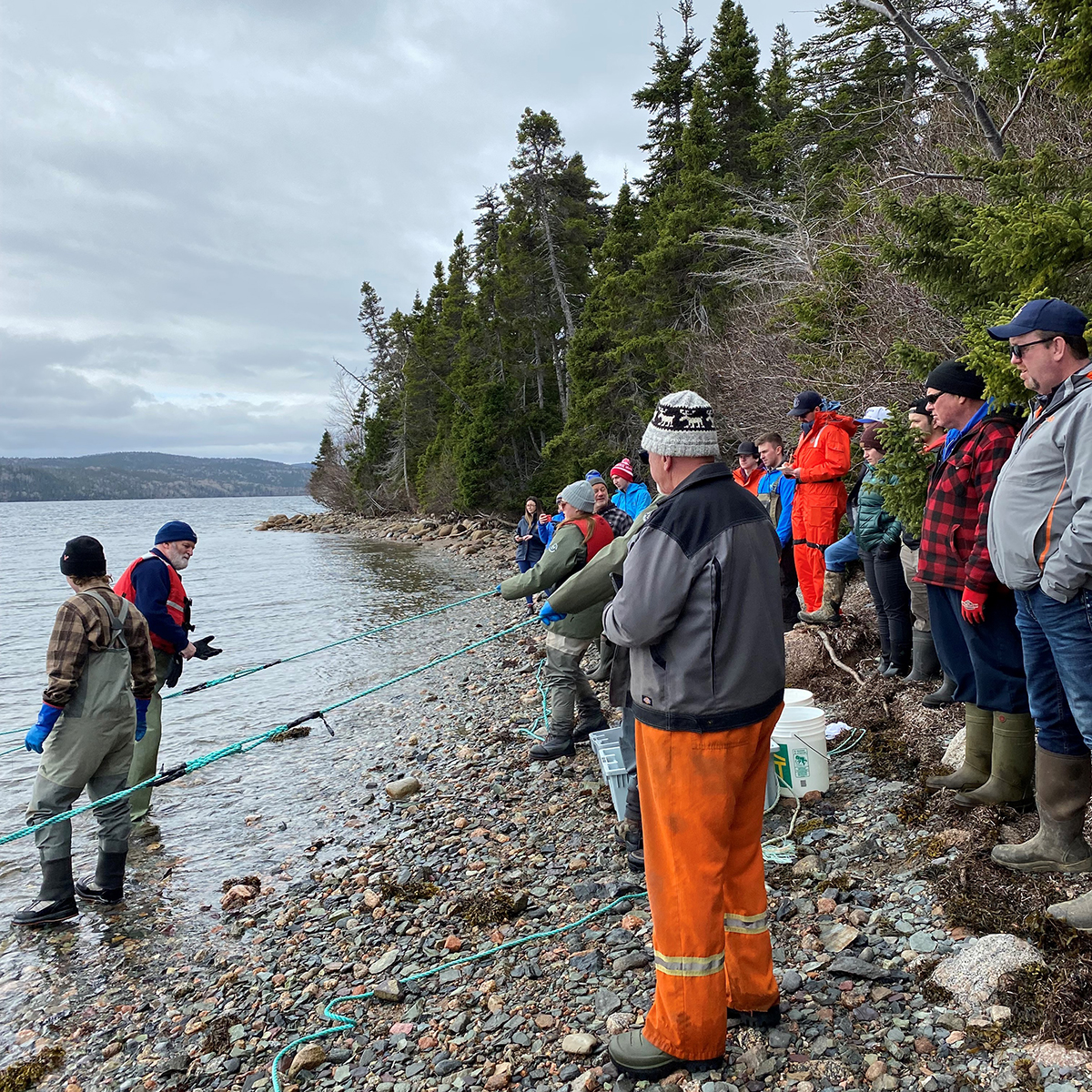
Like most Fogo Islanders, Walter Penton has a deep appreciation and understanding of our surrounding waters. “At the edge of the northeast coast of the Atlantic Ocean it often feels like our waters are limitless,” Penton says, “but there’s a lot more going on below the surface – considering our geographic location, our tides, our cold currents.”
A recently retired transportation worker, Penton is now utilizing his experience and curiosity about the natural environment on Fogo Island to participate in critical monitoring projects on our island that are helping bridge gaps in research. Commonly referred to as Community Science, it’s a growing area of focus for Shorefast that is supported through our partnerships with The Department of Fisheries and Oceans and The Marine Institute at Memorial University.
“Community members with lived experiences in nature can assist in data collection and provide researchers with the information they need. It’s a powerful way to scale up efforts in conservation and coastal adaptation,” Amanda Lim, Shorefast’s Program Manger, Environmental Initiatives, says.
Owing to our geographic location within the Labrador Current (often referred to as a “lung of the ocean”) Fogo Island’s waters are one of the few places where oxygen from the air is transferred to the deepest parts of the ocean with the help of this extremely cold current. This process is critical to keeping marine life alive and influences other oceans around the globe. As such, Fogo Island is a significant bellwether for the changes we are seeing in our climate.

Last spring, Penton joined a group of Fogo Island and Change Islands community members in Terra Nova, the easternmost national park in Canada, where Shorefast and the Department of Fisheries and Oceans were offering a training initiative that would support further research projects on Fogo Island. Back home, Penton and others were able to share what they learned and initiate a new monitoring project around juvenile species in eel grass habitats—an important indicator of our ocean’s current health.
“The training this past year was great,” Penton says. “It opened my eyes to our interactions with marine life, and I am eager to learn more.” Initiatives like these have the potential to establish Fogo Island as a key player in marine research, opening the door for supplementary income and career opportunities that weren’t previously available.
“From what I have seen so far, the future for Fogo Island is very bright. With the insight of Shorefast and its partners, we can be a role model for the province.”